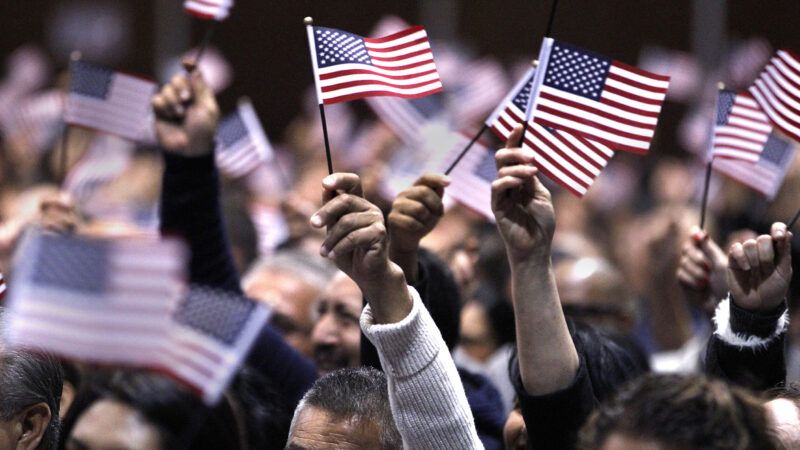Immigration Is a Bright Spot in the America COMPETES Act
Not everything in the bill would keep America competitive, but the immigration provisions certainly would.

This week, House Democrats introduced the America COMPETES Act of 2022, a nearly 3,000-page bill that is supposed to strengthen supply chains and bolster American innovation. Many of its provisions have little to do with preserving American prosperity. But there's one area where the bill really would make things better: immigration.
The COMPETES Act proposes two new nonimmigrant visa programs, one for "entrepreneurs with an ownership interest in a start-up entity" and one for "essential employees of a start-up entity." (The visas also cover their spouses and children.) Under the legislation, the Department of Homeland Security would set up pathways for high-skilled, entrepreneurial foreigners to come to the U.S. for an initial three-year period. They would be eligible for extensions based on certain criteria, such as securing investments, creating jobs, and generating revenue. The bill would make it easier for foreigners with "an ownership interest in a start-up entity" to petition for permanent residence.
The bill would also exempt foreigners with doctoral degrees in science, technology, engineering, or mathematics from country-based numerical limits on immigrant visas. Under the Immigration Act of 1990, the Migration Policy Institute reports, "no country can receive more than 7 percent of the total number of employment-based and family-sponsored preference visas in a given year." In countries where there is high demand for these visas, applicants often face extreme wait times. Back in 2018, the Cato Institute's David J. Bier noted that Indians with advanced degrees applying for EB-2 visas were facing a 151-year wait. The COMPETES Act's doctoral STEM graduates provision would help ease this strained and dysfunctional processing apparatus.
Democratic politicians are marketing the COMPETES Act as a way to outcompete and rebuke China. It therefore includes some provisions making it easier for groups persecuted by the Chinese government to come to the U.S. The bill would provide 18 months of "temporary protected status and refugee status for qualifying Hong Kong residents." It would also allow 5,000 high-skilled Hongkongers to immigrate to America each year.
Another section, the Uyghur Human Rights Protection Act, would grant priority refugee admission status to current and former residents of China's Xinjiang province. Uyghurs there are experiencing brutal persecution and up to 1.5 million may be in internment camps, according to the United Nations. The U.S. has admitted zero Uyghur refugees in the past two fiscal years, making this prioritization all the more overdue.
The immigration provisions aren't perfect. The startup employee visa sets low caps on the number of foreigners who may be employed by a participating startup at a given time. Foreigners applying for the startup and doctoral STEM graduate visas would have to pay a $1,000 fee, which serves as a serious barrier to entry.
But the bill is right to recognize that immigrants are key to keeping this country prosperous. It's also one of the biggest advantages the U.S. has over China. When we welcome foreigners to our soil—either because of the persecution they are fleeing or the skills they bring with them—we preserve our competitive edge and ensure that the best ideas and talent can prosper within our borders.


Show Comments (24)